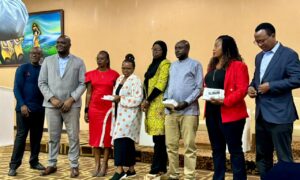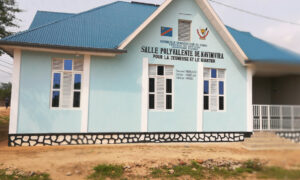Could a multisectoral collaboration alter the illicit outflows narrative?
With the onslaught of the global coronavirus pandemic, there are concerns that the scale and scope of Illicit Financial Flows (IFFs) could be increasing. While authorities focus on the pandemic, other actors should not be distracted. Tax Justice Network Africa (TJNA) has embraced innovation to remain on course and will be hosting a virtual capacity building activity for tax justice advocates in Africa.
Themed Tax Justice Advocacy: increasing participation of Civil society organisations and journalists through capacity building, the 7 th edition of the International Tax Justice Academy (ITJA) brings together participants from the entire continent drawn from the civil society, media, trade unions and academia. Africa is endowed with significant natural resource wealth and with good husbandry could finance its own development.
There however exist illegal cross border movement of money and capital that threaten the continent’s sustainable development and have been growing every year.
If there has been a growing recognition of threat that Illicit Financial Flows (IFFs) pose on the continent’s integrity and stability of its financial system in normal times, how about during a pandemic? Africa is home to the world’s largest arable landmass; second largest and longest rivers (the Nile and the Congo); and its second largest tropical forest. According to a study by the African Development Bank Group, the total value added of its fisheries and aquaculture sector alone is estimated at USD 24 billion. In addition, about 30% of all global mineral reserves are found in Africa.
The continent’s proven oil reserves constitute 8% of the world’s stock and those of natural gas amount to 7%. Minerals account for an average of 70% of total African exports and about 28% of gross domestic product. Even with such enormous resources, the continent’s poverty rate stands at 41%, and out of the world’s 28 poorest countries, 27 are in Africa all with a poverty rate above 30%.
“For African countries to stand on their feet economically and finance their own development, they need and seal the loopholes facilitating outflow of resources, at the same time encourage creative and innovative ways to finance the development agenda. We need to pull on the same side” said Alvin Mosioma, the Executive Director, TJNA. Undoubtedly, IFFs have turned the continent to a net creditor.
During the academy, TJNA endevours to empower the target groups with skills to identify, track and report illicit outflows from the continent. While there is dependence on the academia and research institutions for publication of scientific studies, it is the role of the civil society to advocate for increased transparency around public revenues and expenditures. The media should invest in improving their skills for in-depth investigations and expose such abuses for action to be taken.
Trade unions should take advantage of their presence in every country int he continent and explore possibilities of collaborating with non-state actors to combat IFFs in Africa. “African countries achieved independence well over fifty years ago, yet the global financial and tax systems are rigged against their interests. This has severely affected the sovereignty of African nations by undermining domestic revenue mobilization in Africa that is required for public spending and investment, forcing many governments to borrow and rely on overseas development assistance.
Revelations, like the Panama Papers, Paradise Papers and Luanda Leaks, show the role many former imperial powers and their dependencies play in enabling illicit financial flows from the continent.
These flows out of the continent and associated revenue losses dwarf finance that flows inward in the form of overseas development assistance, remittances and loans” said Rachel Etter-Phoya of Tax Justice Network based in Malawi. It is envisaged that beyond the skills development, the academy will birth strengthened alliance of tax justice advocates with enhanced capacities to reduce IFFs and are involved in the tax justice debate.
























